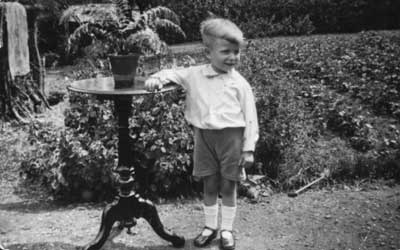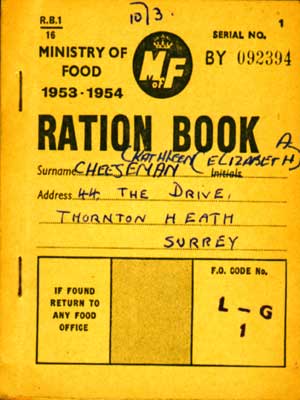
Gardens were transformed into vegetable patches, rather than the playtime havens they are today.
Whole families were evacuated from the big cities and towns into rural locations to escape the bombings.

Many goods were exchanged - older folk swapped their cheese and butter ration in exchange for eggs, pork and bacon were "smuggled" to friends and relations under the cover of darkness.
Click here to listen to Peter Garratt recalling how pigs were killed during rationing. This audio clip may take some time to download (about 300K)
Fruit was in short supply and mainly consisted of apples and pears. Oranges and bananas were a rare commodity and only appeared towards the end of the war. Children's diets were supplemented with orange juice - thick and sour and totally unlike the juices we know today - but still an important source of vitamin C.

Many houses had cellars that were converted into air raid shelters, others had shelters dug in the gardens. Those without shelters were made welcome at their neighbours, as an extract from Cecil Woodland's diary of June 1940 illustrates.
Another constant reminder of wartime was the regular drone of planes flying south to bomb Europe at dusk from airstrips in the Midlands.
This audio clip may take some time to download (about160K)
